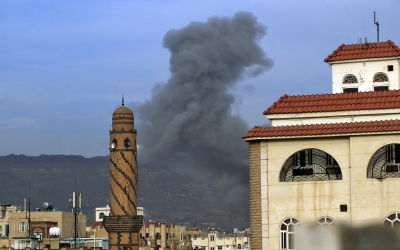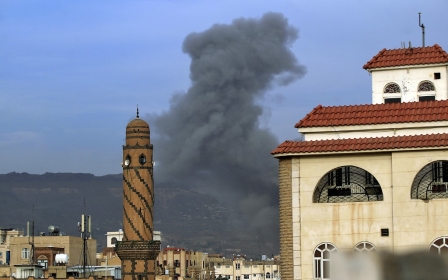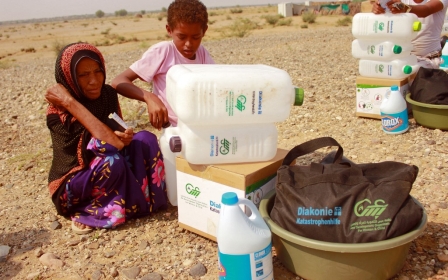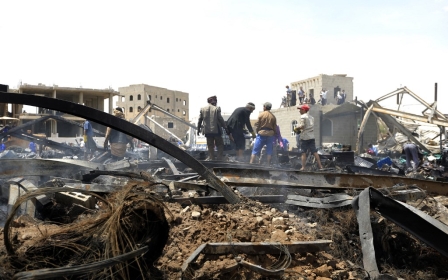Yemen warring parties agree to exchange over 1,000 prisoners
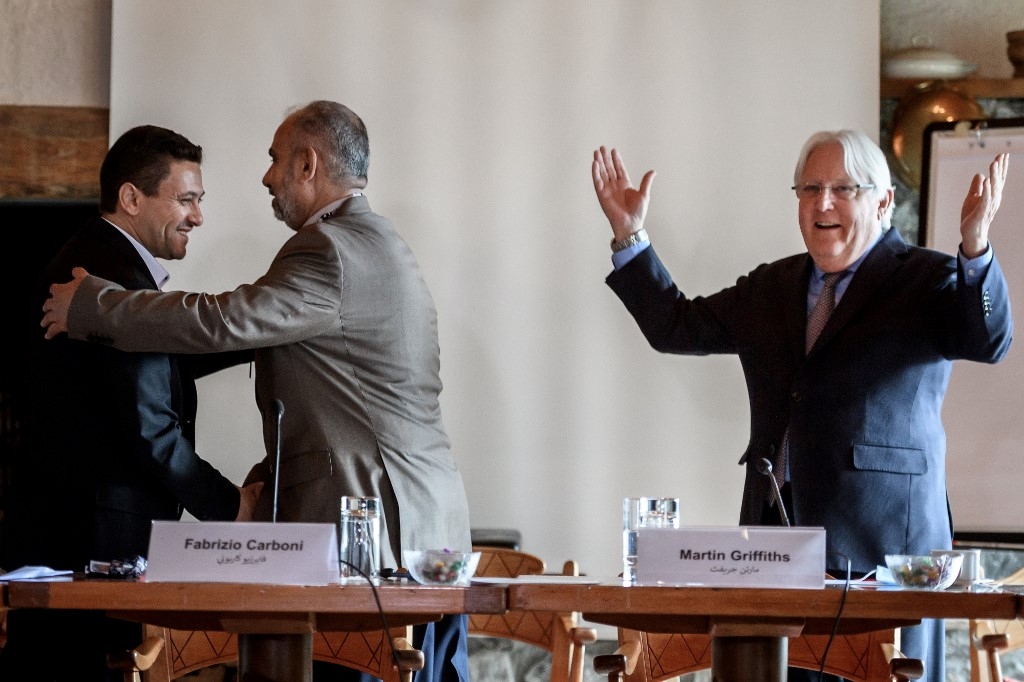
Yemen's warring parties have agreed to exchange around 1,000 prisoners, including 15 Saudis, as part of trust-building steps aimed at reviving a stalled peace process, the United Nations and Houthi media said on Sunday.
The Yemeni government, backed by a Saudi-led military coalition, and the Houthi movement, who have been battling for over five years, signed a deal in late 2018 to swap some 15,000 detainees split between both sides, but the pact has been slowly and only partially implemented.
New MEE newsletter: Jerusalem Dispatch
Sign up to get the latest insights and analysis on Israel-Palestine, alongside Turkey Unpacked and other MEE newsletters
The two sides will now free 1,081 detainees and prisoners, UN Special Envoy Martin Griffiths said in a joint news briefing with the International Committee of the Red Cross (ICRC) after a nearly 10-day meeting of the prisoners' exchange committee held in the Swiss village of Glion above Lake Geneva.
Sources familiar with the talks and Houthi-run Masirah TV said the movement would release 400 people, including 15 Saudis and four Sudanese, while the coalition would free 681 Houthi fighters in the largest swap since peace talks in Stockholm in December 2018.
"I urge the parties to move forward immediately with the release and to spare no effort in building upon this momentum to swiftly agree to releasing more detainees," Griffiths said.
ICRC Middle East director Fabrizio Carboni, sitting next to Griffiths, called on the two warring parties to provide "security and logistical guarantees" for swift releases. The ICRC team will interview those released and give them medical checks.
Devastating conflict
Yemen has been mired in conflict since the Houthis ousted the internationally recognised government from power in the capital, Sanaa, in late 2014, prompting the western-backed coalition to intervene in March 2015.
Griffiths is trying to restart political negotiations to end the war, which has killed tens of thousands of people and caused what the United Nations describes as the world's largest humanitarian crisis, with millions on the brink of famine.
"What matters to us is implementing the prisoners [exchange] and not just signing it," senior Houthi political official Mohammed Ali al-Houthi tweeted earlier on Sunday.
In unilateral moves, the Houthis last year freed 290 prisoners and Saudi Arabia released 128, while a locally mediated swap in Taiz province saw dozens freed. In January 2020, the ICRC facilitated the release of six Saudis held by the Houthis.
The conflict, seen in the region as a proxy war between Saudi Arabia and Iran, has been in military stalemate for years, with the Houthis holding Sanaa and most big urban centres.
Riyadh launched informal talks with the Houthis late last year for a ceasefire as it seeks to exit a costly war ahead of hosting a summit of the Group of 20 nations in November.
Middle East Eye delivers independent and unrivalled coverage and analysis of the Middle East, North Africa and beyond. To learn more about republishing this content and the associated fees, please fill out this form. More about MEE can be found here.


